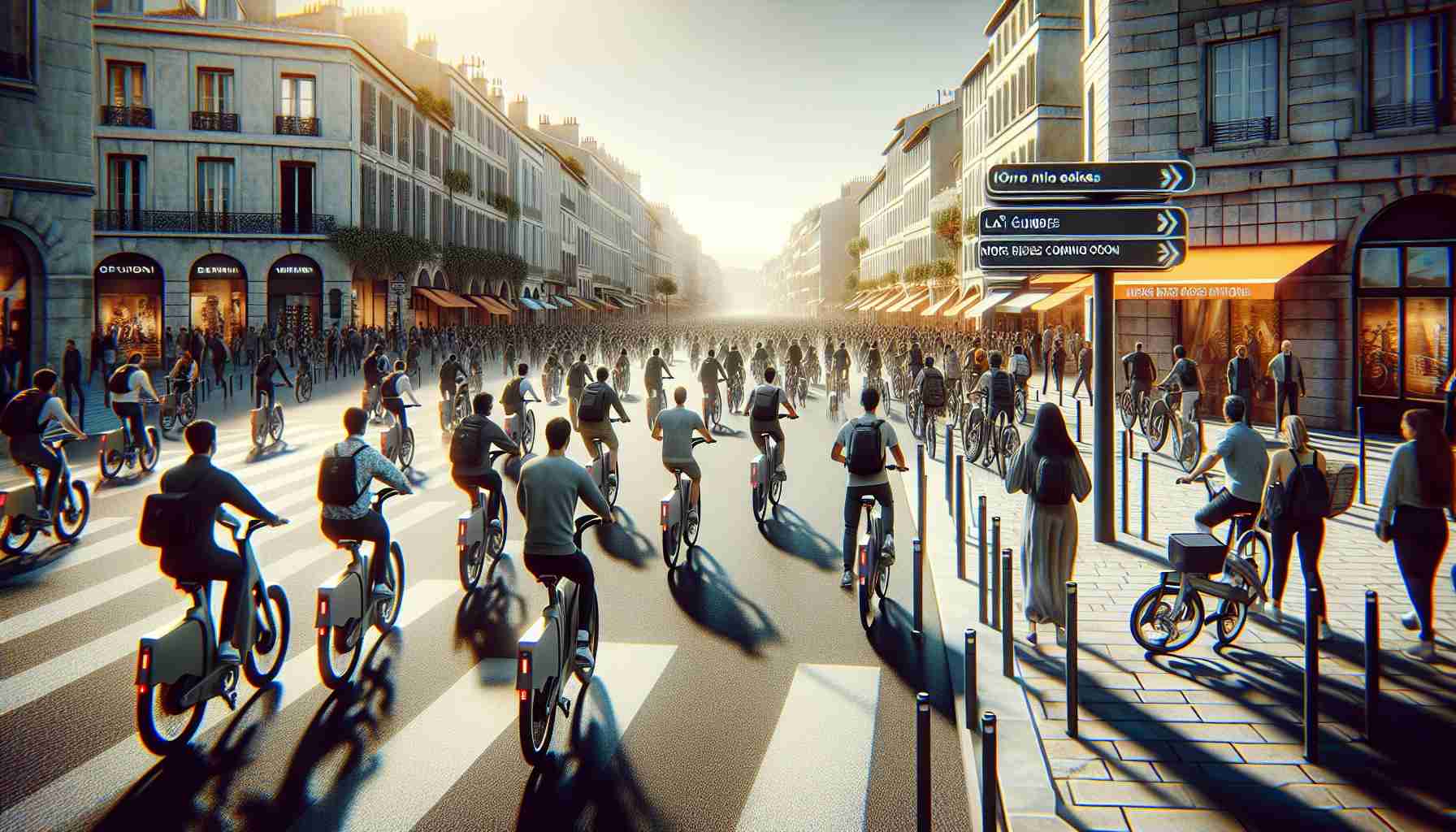Significant Expansion of Marseille’s Electric Bike Fleet
In a bold move to enhance sustainable transportation, the Aix-Marseille-Provence Metropolis plans to dramatically increase its fleet of electric bikes available for public use in Marseille. The initiative aims to expand the number of electric bicycles from 2,000 to an impressive 4,600 by 2025. This ambitious proposal will be put to a vote at the upcoming metropolitan council on December 5.
To accommodate growing interest, the project also introduces 130 new bike stations, elevating the total count to 330 throughout the city. This expansion is a response to a significant uptick in demand for electric biking, which has surged over the past two years. Between October 2023 and October 2024, the number of rides doubled, with 457,000 trips recorded, reflecting a staggering 104% increase.
Previously, in December 2022, the Metropolis revitalized its bike program by launching 2,000 electric bikes across 200 stations, marking a pivotal moment as Marseille became the first major French city to implement a service of this scale. This latest initiative not only highlights the city’s commitment to eco-friendly transport but also promises to make biking more accessible and convenient for residents and visitors alike.
Revolutionizing Urban Mobility: Marseille’s Electric Bike Fleet Expansion
Introduction
Marseille is set to become a pioneer in sustainable urban transportation with its plans to significantly enlarge its electric bike fleet. This expansion will not only foster a greener environment but also promote healthier commuting options for residents and tourists alike.
Key Features of the Expansion
1. Increased Availability:
– The number of electric bikes available for public use will rise from 2,000 to 4,600 by 2025, nearly doubling the current fleet. This increase aims to meet the soaring demand for eco-friendly transportation options within the city.
2. New Infrastructure:
– Along with the bike fleet increase, the city will introduce 130 new bike stations, bringing the total to 330. This enhancement in infrastructure will facilitate better accessibility across different neighborhoods and tourist attractions.
3. Usage Surge:
– A remarkable 104% increase in electric bike usage has been documented over the past two years, with around 457,000 trips recorded from October 2023 to October 2024. This statistic underscores the growing popularity of electric biking as a preferred mode of travel in metropolitan areas.
Environmental Implications
Marseille’s initiative is a significant step towards reducing carbon emissions and promoting sustainable transport. An increase in electric bike usage is projected to contribute to a decrease in traffic congestion and pollution, aligning with broader environmental goals set by local governments.
Pros and Cons of the Electric Bike Expansion
# Pros:
– Sustainable Mobility: Encourages the use of bikes over cars, reducing the carbon footprint.
– Health Benefits: Promotes physical activity among residents.
– Accessibility: More stations and bikes make it easier for everyone to use the service.
# Cons:
– Initial Costs: Significant investment is needed for infrastructure and bike maintenance.
– Safety Concerns: Increased bike traffic may lead to potential accidents if infrastructure is not adequately planned and maintained.
Market Insights
The trend towards electric bikes is reflective of a larger global movement aimed at sustainable urban development. As cities worldwide grapple with congestion and environmental challenges, Marseille’s initiative positions it as a leader in adopting innovative transport solutions.
What to Expect
If the proposal passes the metropolitan council vote, residents can expect a phased rollout of the new bikes and stations, providing ample opportunities for exploration throughout the city. The initiative aligns with growing urban trends that favor smart city innovations.
Conclusion
Marseille’s ambitious plan to double its electric bike fleet is not just a local initiative; it sets a benchmark for other cities globally. As urban areas continue to evolve, such sustainable projects are vital for shaping the future of urban mobility.
For more information on sustainable transportation trends, visit this link.




